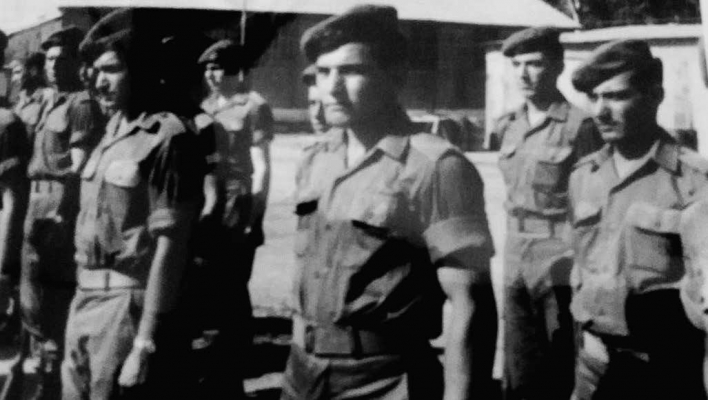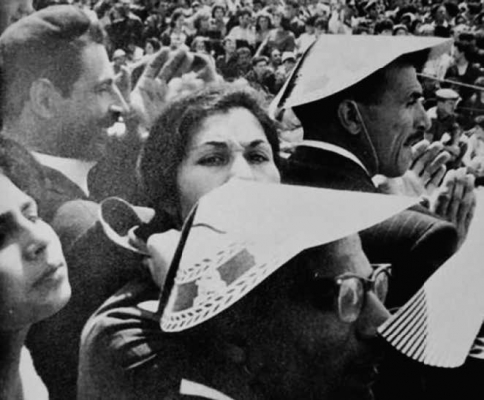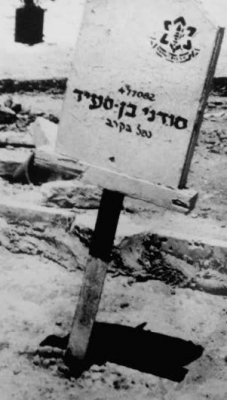Six Day War - Our Survival Was in Question
It was hot and dusty in Beersheba in late May, 1967. I had just celebrated my 15th birthday. The impending war was threatening us from all sides.
The seemingly endless, deep rumble woke us up at night. It was the muted echo of massive troops, tanks and vehicles, continuously moving south to the Egyptian border. There was a tremor accompanying that rumble, in the ground and in my young, impressionable heart. I was aware of the smallness of our country and how vulnerable we were against all the neighboring Arab countries that were preparing an offensive against us. These richer, bigger and more powerful countries around us were amassing their troops at our borders. The radio was on constantly at home and everywhere I went. It was informing us that the odds were very much against us. The newscasts were not encouraging at all. I felt fear and insecurity, mixed with determination to do all that I could to help the survival efforts.
The war action felt very close to home. We could see and hear a lot of the preparations. We lived in a neighborhood in Beersheba, called "Shikun Ledougma", which was built in 1962 for people who worked for the Ministry of Defense. Many of my classmates were children of officers in the Southern Command, including Yeshayahou "Shayke" Gavish, its Commanding General, whose son was my classmate and neighbor. My uncle Sidney Bensaid was a tank commander, stationed on the Sinai border. So many of the people I knew had family members on the front.
From the first day that I became aware of the prewar activities, I started feverishly helping everywhere I could, together with my classmates. We would make Care Packages for soldiers and deliver them in person, standing on the side of the main road where the troops kept flowing southwards. We stood there in the heat of the brutal sun with big smiles and words of encouragement for those young soldiers, who were often not much older than we were. They loved that we were there, always cheering and waving at us. Our big smiles for them concealed that our hearts were already filled with deep sadness, because we knew that many of them would not be coming back.
When I was not preparing or handing out Care Packages to soldiers, I was painting and cleaning shelters. Many of the shelters were neglected and needed sprucing up and preparing for actual use. They also needed clear signs so people could find them easily. It was important and urgent work. We ended up needing them several times, when warning sirens would go off, sometimes in the middle of the night. It brought our neighborhood even closer together. We all huddled in the small spaces together, trying to cheer up the small children by telling them stories and playing games. We even hung drawings on the walls to brighten up the musty cement structures. There were not enough shelters to fit in everybody in the neighborhood, so we also dug trenches. They were about two meters deep and half a meter wide. We filled sand bags and arranged them on the edges of the trenches. We ran there when the sirens sounded, warning us against attacks by air.
Then the actual war started. All we could hear, early the first morning of June 5th, was the sound of fighter jets taking off from the nearby Hatserim Air Force Base. It went on and on and on, as if hundreds of them were taking off. I knew something very big was happening. There were also many more warning sirens going off in Beersheba that day, which added to the ominous feeling. My heart kept beating fast and my stomach was in knots. My mind was in an intense alarm mode. We were smack in the middle of a war. I felt like a sitting duck. Tensions and fear ran very high. The air was heavy and the heat was unbearable. My mom and most of the adults seemed extremely tense.
Later in the day, we found out that the Israeli Air Force had destroyed the bulk of the Egyptian Air Force on the ground, before they could be deployed. That was the mission of the massive number of fighter jets we heard leaving early that morning. The feeling of relief didn't last long because together with the reports of overwhelming Israeli victories on all fronts came the news of the casualties, affecting so many families that we knew. The cost of winning was very high. Close to 900 Israeli lives were lost and thousands wounded and maimed. We kept watching the endless streams of helicopters delivering the wounded from the Front to Hadassah hospital. We would stand by the window and wonder who it was this time. We knew so many of the wounded.
The first night of the war, my mom woke up screaming. She couldn't stop crying and was losing her mind with grief. She said she heard her youngest brother Sidney calling out for his mom and she just knew with certainty that he had been killed. Later that day, we found out she was right. My father took me outside to inform me that my favorite uncle had indeed been killed in the first battle of the war, in Um Katef, from a direct hit to his tank. I shook uncontrollably and my knees buckled. He was my youngest uncle, only 23 years old. He was a bon vivant, always smiling and positive. We were very close and I loved him dearly. Our family was overcome with grief. There were too many funerals in the ensuing days. The joy of winning was tainted by the somber awareness of the losses. We went to the parades with a heavy heart.
Life in Israel was changed. It was no longer "Little Eretz Israel" (Eretz Yisrael Haktana). We didn't feel so vulnerable. We were told that we now had more secure borders. Israel was no longer 10 miles wide at its most highly populated center. David had won against Goliath. We had glimpses of feeling invincible, but we could not forget that "victory" came with a high cost of human lives. For me, it marked the end of my childhood, as well as the end of the childhood of my young country, which had just recently celebrated its 19th birthday and was now changed forever.










Comments